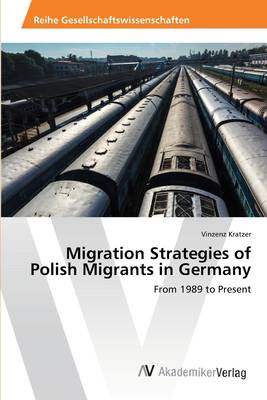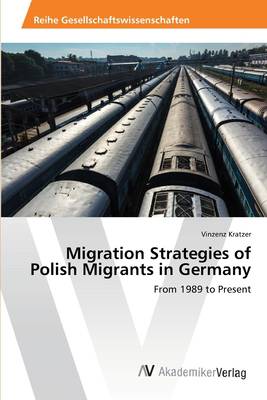
- Afhalen na 1 uur in een winkel met voorraad
- Gratis thuislevering in België vanaf € 30
- Ruim aanbod met 7 miljoen producten
- Afhalen na 1 uur in een winkel met voorraad
- Gratis thuislevering in België vanaf € 30
- Ruim aanbod met 7 miljoen producten
Zoeken
Migration Strategies of Polish Migrants in Germany
From 1989 to Present
Vinzenz Kratzer
Paperback | Engels
€ 42,95
+ 85 punten
Omschrijving
In recent migration research, a rigid neoclassic econometric mainstream has been established, which is becoming more and more subject to critique. The main idea of this work is the integration and operationalization of different critical migration theories, in order to test their strength of analysis in comparison to mainstream neoclassic economic theories. Rather than applying a combination of rational choice and a framework of push and pull factors, Migration strategies are conceptualized as a series of ad-hoc decisions taken at critical nodal points, which are in turn provided by a dynamically evolving migration system. The meta-analysis of about 30 mid-range studies on migration in Poland and Germany of different subjects and academic fields shows distinct types of migration strategies, their development over time and the obstacles and dangers many migrants encounter.
Specificaties
Betrokkenen
- Auteur(s):
- Uitgeverij:
Inhoud
- Aantal bladzijden:
- 144
- Taal:
- Engels
Eigenschappen
- Productcode (EAN):
- 9783639463255
- Verschijningsdatum:
- 7/09/2013
- Uitvoering:
- Paperback
- Afmetingen:
- 150 mm x 220 mm
- Gewicht:
- 208 g

Alleen bij Standaard Boekhandel
+ 85 punten op je klantenkaart van Standaard Boekhandel
Beoordelingen
We publiceren alleen reviews die voldoen aan de voorwaarden voor reviews. Bekijk onze voorwaarden voor reviews.








